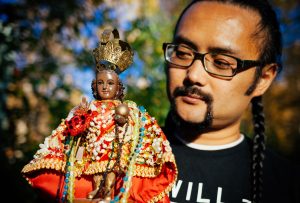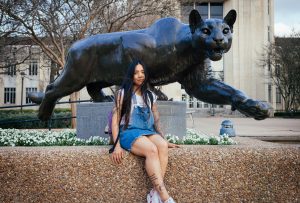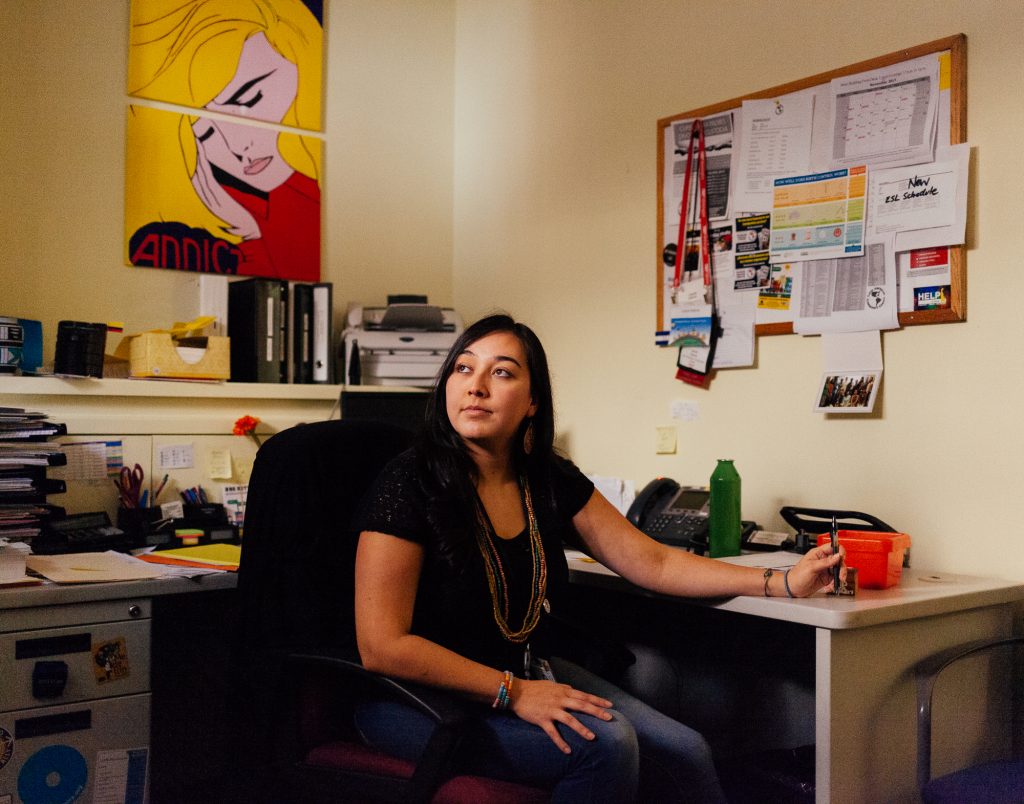
Childhood
Laura grew up in La Ceiba on the northern coast of Honduras where she lived until the age of nine. From an early age, Laura had a love for dance and performance.

Laura’s father is Colombian, and her mother Honduran. Her parents were both doctors, so her family was financially secure. She remembers walking up and down La Ceiba’s town square, going to the Pizza Hut and movie theatre.
Laura started learning English in the first grade at a bilingual school and, over time, she competed in English competitions at the national level. Once, she came in second place in the entire country.
“I was really sad because I lost to a boy. The word that got me out was “clothes” plural. I think I spelled “cloths.”
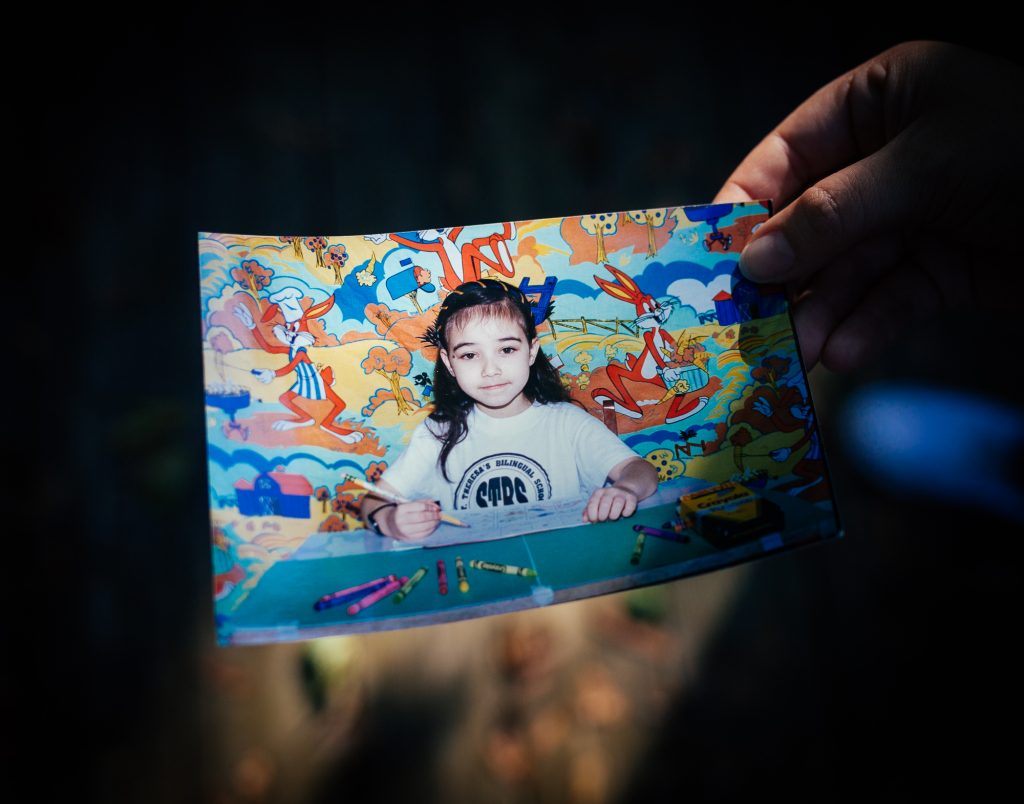
United States
Laura’s parents had wanted to move to the United States long before Laura or her sister were born. Her father had family living in the US, and he began the immigration paperwork in 1985, the year her older sister was born.
Laura remembers her parents sitting her and her sister down to tell them they were going to be moving to the United States. Laura was nine, and her sister was 12.
“I didn’t know why, but I felt it was the end of my life.”
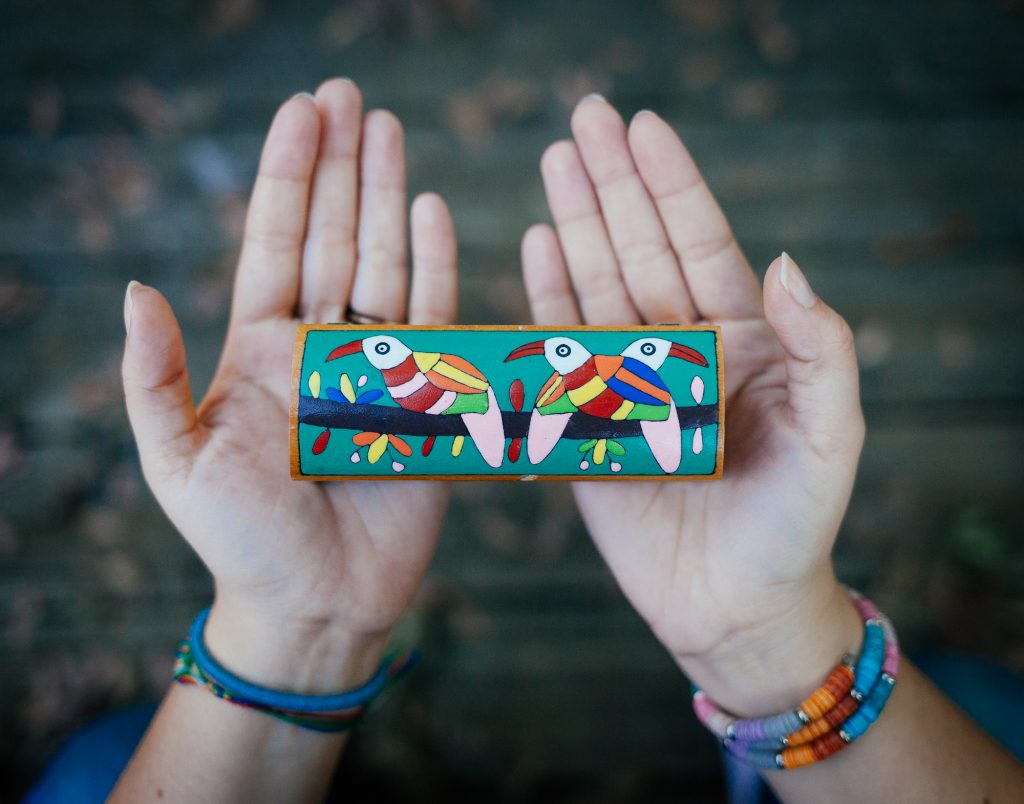
Looking back on it, Laura understands the opportunities presented by their move to the US. Her parents could see that their country was moving in the wrong direction politically.
“It was dangerous in Honduras, and because my parents were doctors, they were part of the minority that was financially well off. Several times they tried to break into our house. My dad had to keep a gun. We had to get a guard to sit outside and watch the house at night. Our maid was held up at gunpoint.” (audio below)
Florida
In June 1997, they flew to Orlando, where her uncle and grandparents were living. They had to do all the paperwork, fingerprinting, and photos to get green cards.
“I was really scared. I was a nine-year-old kid in this room full of people that don’t look anything like your people – all very serious-looking men who looked like cops. They all were in uniform wearing a belt with stuff on it, official and scary, and already you feel like you are imposing. When we finally got out of that which took hours and hours, we got our cards that said ALIEN on them. I remember that card.” (audio below)

Laura’s uncle picked them up from the Orlando airport.
“We were in the backseat with my cousin. She said ‘put your seat belts on!’ My sister and I looked at each other then replied, ‘Why?’ She said, ‘because it is the law’! It was one of those culture shocks. In Honduras, people didn’t wear seatbelts. Now when I get in the car, it feels so strange if I don’t have my belt on.” (audio below)
Laura and her family lived at her grandparents’ two-bedroom apartment right behind Universal Studios. Her grandfather and aunt worked at Disney, a place “every Floridian gets tired of in the end.” Disney ended up playing a prominent role in their introduction to the USA.

Hell
Laura’s first year in Orlando was “hell.” She was in fourth grade, and although she could speak English, she didn’t feel like she belonged.
“I didn’t have the slang – all the things the cool kids were saying. I didn’t fit in with any crowd and only had two friends – a Chinese girl and a Pakistani boy. We were the outcasts in the class. I didn’t want to go to school because I didn’t enjoy it; I couldn’t wait for the day to be over. It was hard.”
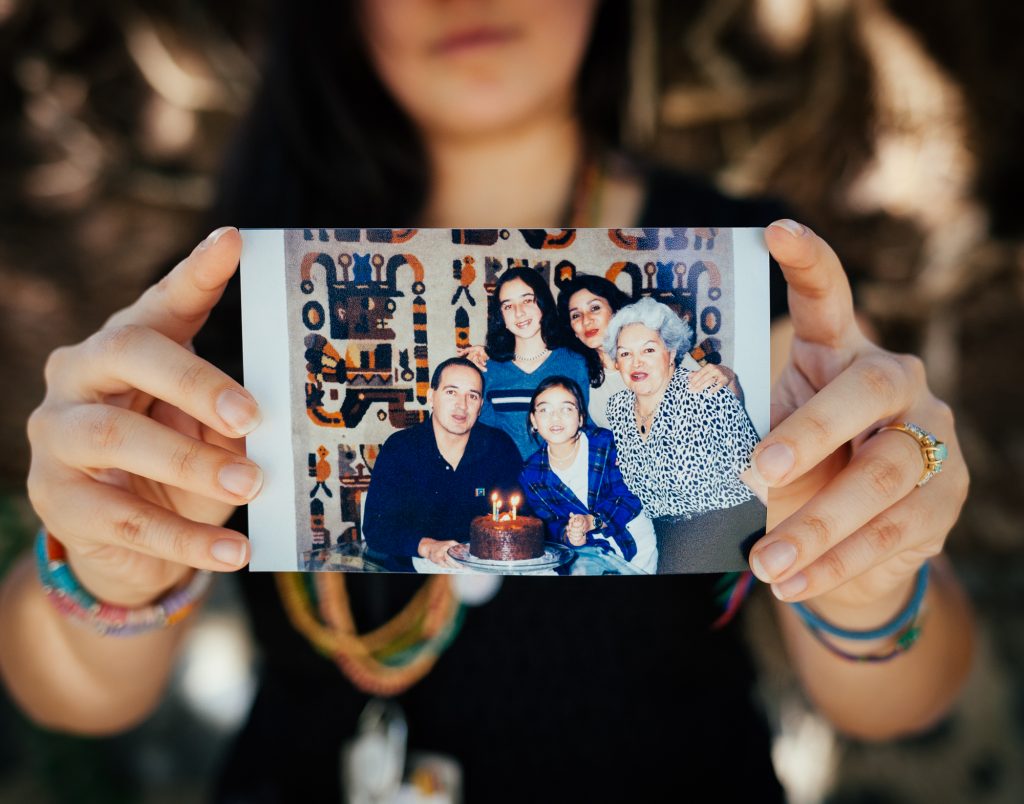
At the end of that first year, her father got a job in Miami, and they moved there in 1998. In Miami, Laura fit in, as three-quarters of her classmates were Hispanic. She stayed in Florida for more than a decade.

Delaware
Laura came to Delaware in 2011, to get her Ph.D. in Sociology. The University of Delaware offered her a scholarship, so she decided to go to a state where she had neither heard of nor visited. Laura explains how northern Delaware, where she lives, is more metropolitan and populated. In contrast, the south, an area she doesn’t know well, is more rural and empty.
Laura describes Wilmington as a complicated city, with a strange history that has led to a lot of social issues. Segregation, gerrymandering, poor urban planning, gang violence, drug trafficking, and murder – nicknamed “Murder Town USA.”
“There are parts of Wilmington that are incredibly wealthy with million-dollar homes, then you drive four blocks, and you have broken windows. It is bizarre.”
Laura also sees Wilmington as a special place with artistic people full of passion and with big hearts, all working towards the betterment of the community.
“People who grew up here will defend this place until the day they die. Recently I was having a conversation with somebody, and they were talking down Wilmington, and I found myself defending Wilmington. I never thought I would call myself a Wilmingtonian, but I must like this place. I think there is a lot of struggle here, but also a lot of knowledge and wisdom.” (audio below)
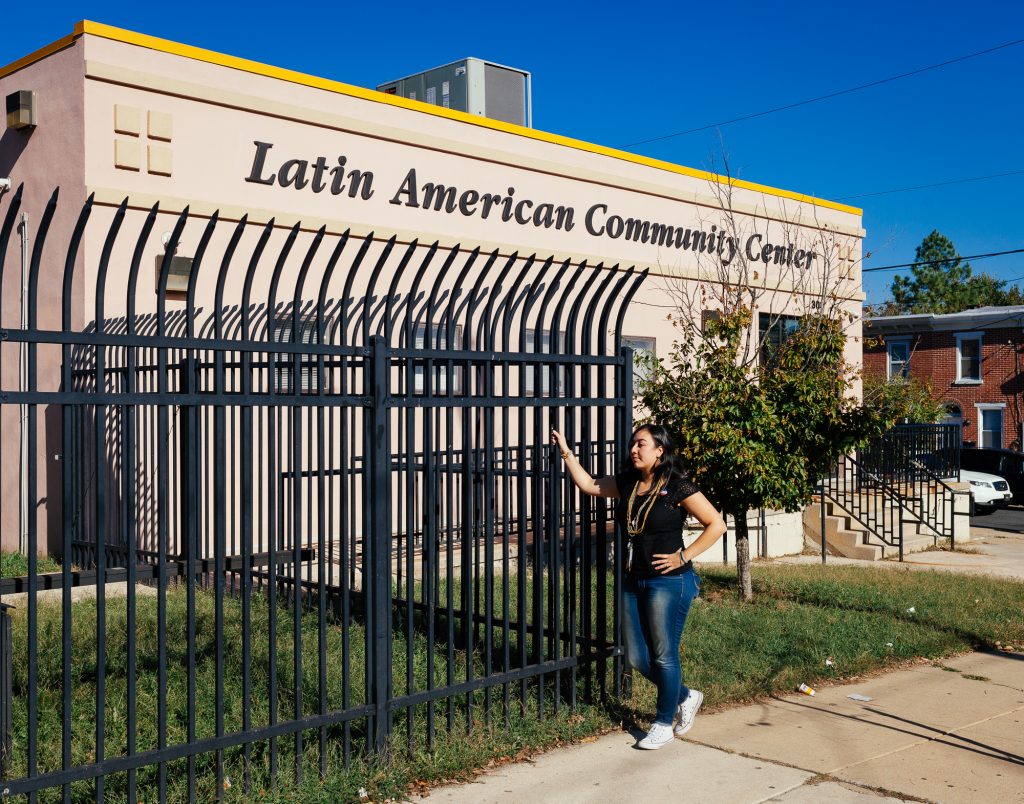
Latin American Community Center
Laura works at the Latin American Community Center as the Manager of Prevention and Advocacy. At the Center, she has worked with families in the community on issues like HIV, drug and alcohol addiction and recovery, as well as financial literacy.
“We do a little bit of everything. It is a non-profit, so we all wear a lot of different hats and pitch in when needed.”
Laura is especially concerned about the Latino community in the United States, specifically in regards to the policies of the current federal administration.
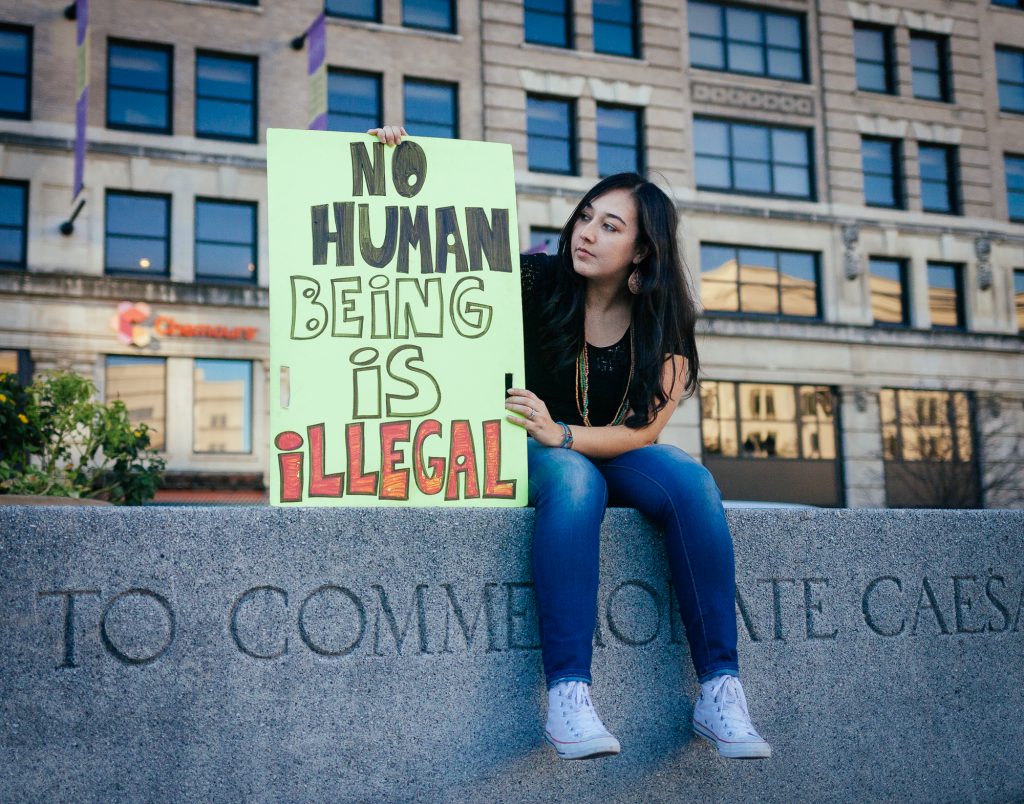
Illegal
In her youth, Laura remembers hearing about people coming to the United States “illegally.” It bothered her because her family came “legally.” She knew it cost her parents a lot of money and time, waiting for more than a decade to get their visas.
“As a kid, I remember thinking, wait your turn in line and pay your dues. That is definitely something that has changed. Because I never realized as a kid just how privileged I was. Ya, my parents did it the ‘right way’ but they had the means to do so; they had access to the financial and legal means to do so. They had access to lawyers and knew how to read forms properly. My parents were able to go through the process. They were also not necessarily without other options. They did it the ‘right way’ but they had more opportunities to do it that way.” (audio below)
Laura now knows that her upbringing was not like most Hondurans and many other people who immigrate to the USA. Today, she is an advocate for those who are undocumented.
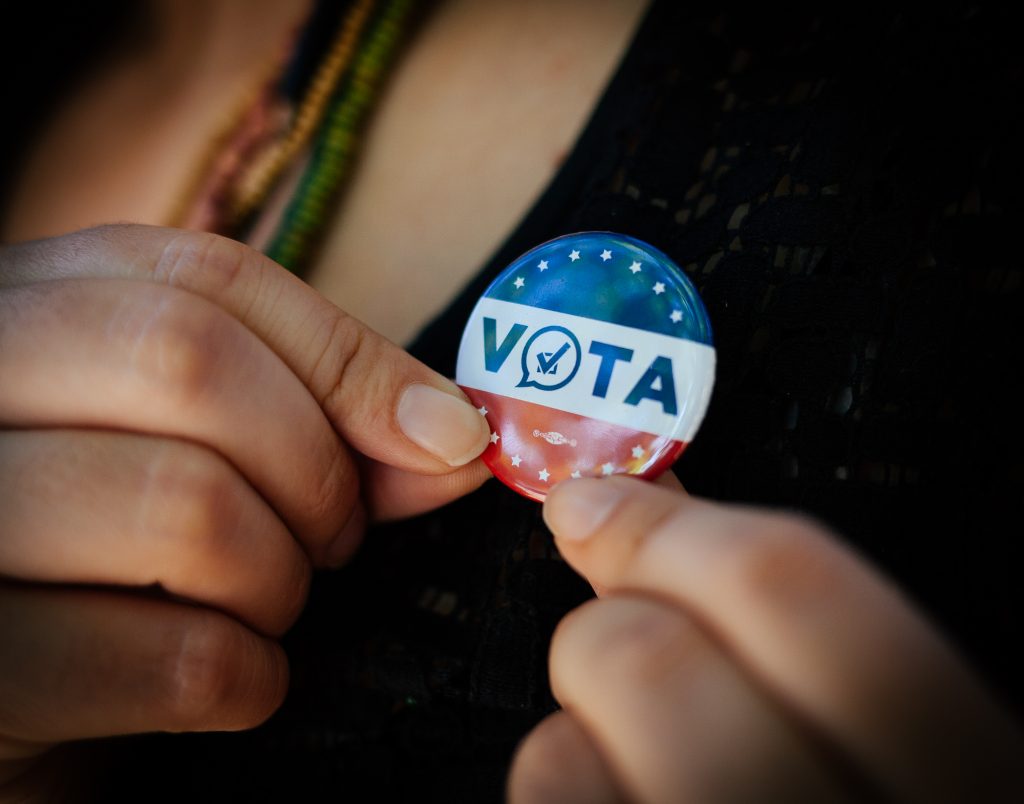
Vote
Before the 2016 election, Laura was in charge of training people at the Latin American Community Centre about how to register voters.
“One message we always relay to our community is the importance of voting. If you have citizenship and the ability to vote, it is that much more important you do for those that don’t have that ability or opportunity. The policies enacted by our politicians impact them, but they aren’t able to affect those policies. It is our job to speak for those that basically can’t. We tried to remind people that they were not just voting for themselves; they were voting for two or three other people who couldn’t vote.”
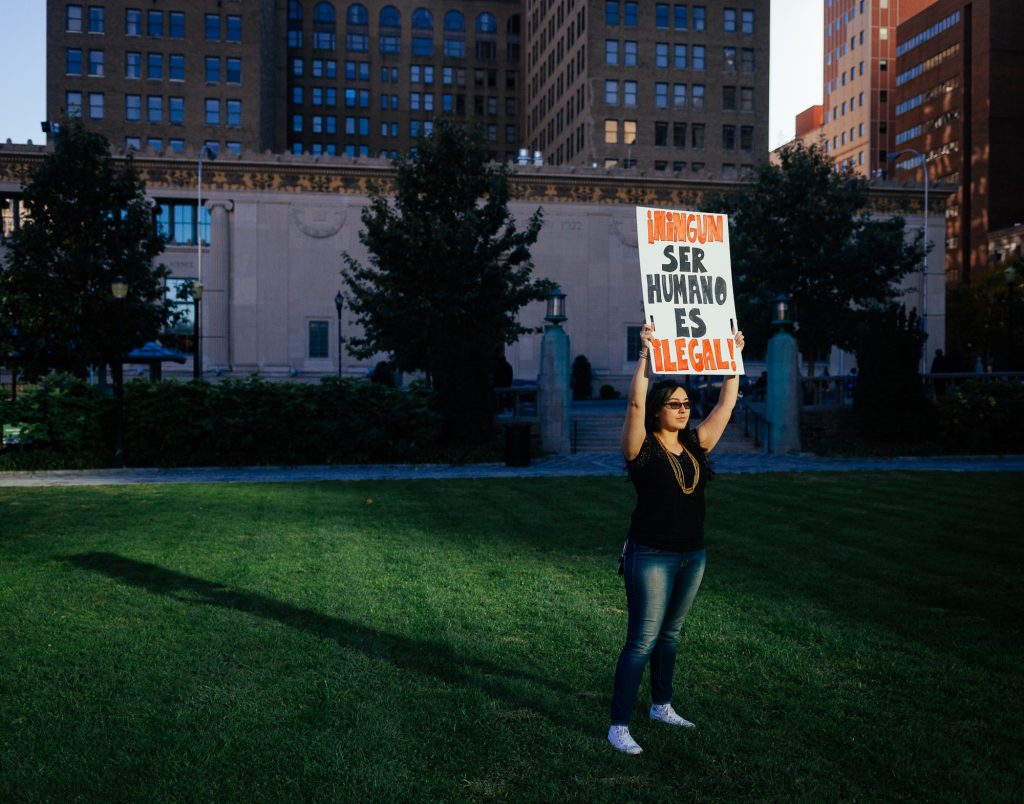
Future
Laura emphasizes the need to recognize the full spectrum of immigrant experiences, specifically within the Latino community.
“We are not all the same, and we have varied experiences. There are a lot of stories of immense struggle and strife, but there are stories of privilege like mine.” (audio below)
Whatever Laura does in the future, it will continue to focus on improving the situations of minority and oppressed groups.
“I think when we recognize one form of discrimination or oppression, it sheds light on all the other types as well because there are parallels.”
Laura believes that increased exposure to different types of people and diverse ideas leads to more tolerance and acceptance.
“By default, most people are good.” (audio below)
#FINDINGAMERICAN
To receive updates on the book release and exhibition of “Finding American: Stories of Immigration from all 50 States” please subscribe here. This project is a labor of love and passion. If you would like to support its continuation, it would be greatly appreciated!
© Photos and text by Colin Boyd Shafer | Edited by Janice May & Kate Kamo McHugh. Quotes are edited for clarity and brevity.



